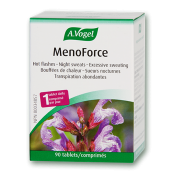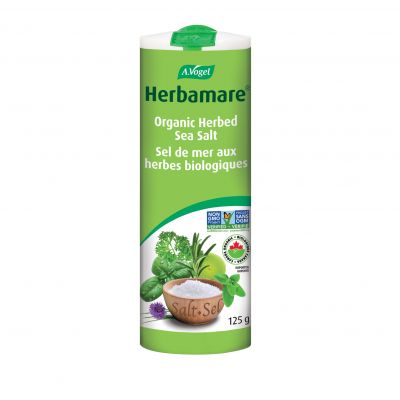How long does menopause last?
This is one of those really tough questions to answer. The idea is that if you know how long it's supposed to last, you'll have a rough idea about when it'll end for you. But the problem is that menopause plays out differently for every woman.
Every one of you reading this will have a unique menopause, one that's yours and yours alone—there's no such thing as "one size fits all." We could sit ten women next to each other on a couch, all of the same age, all going through menopause, and each one would have a completely different experience, which is why it's so difficult to answer these types of questions.
(click on image to enlarge)
At best, I can provide a very rough guide: on average, perimenopause lasts about four years. In other words, from the moment you notice that your hormones are changing and that you experience some kind of menopausal symptoms, to the moment your periods stop for good, the average time is about four years.
For some women, it's very quick; they might not even really notice much going on until they suddenly realize they haven't had a period for a few months. For other women, this perimenopausal phase could last seven or eight years. Again, this is going to be unique for you.
Once your periods have stopped completely for one year, you are clinically considered as menopausal. Generally, the period after 12 months with no menses, is called postmenopause. So roughly, for the average woman, if you include the perimenopause and postmenopause phases you're talking about eight to nine years in all.
But remember, in some women it's going to be a lot shorter and easier, while for others, it's going to be a lot longer and possibly harder.
What are the signs that menopause is finally over?
Women also often ask me, "What are the signs that menopause is finally over?" Usually, you'll just notice that you start to feel better. Your symptoms will have eased off or stopped. You'll feel more like yourself or you'll just feel better overall. You'll find that you're sleeping better and that your health is better. Normally, that's when you'll be able to say to yourself, "Thank goodness. That's it. Finally. Done."
Why am I still getting symptoms after being menopausal?
Many women also write in wanting to know why they're still getting symptoms well through menopause. Remember that once your periods have stopped for one year, you're officially menopausal. But your hormones just don't suddenly stop changing after this year has elapsed—your hormonal balance can continue to fluctuate for a good number of years after that.
And for some women, this ongoing hormonal change will continue to trigger menopause symptoms. But if it's been over four or five years since your periods stopped, you should get things checked out by your doctor just in case.
Other health issues can creep in and menopause is often blamed for it. A lot of women will try menopausal remedies and find that they don't really work, but it's often because, unbeknownst to them, these menopause-like symptoms are being triggered by other health issues. In this situation, it's really important to get yourself checked out by your doctor because if the issues are being caused by something else, your doctor will help you sort it out, which will make you feel better in the long run.
Coming off HRT
If you stop using hormone replacement therapy, you need to know that you'll experience a very sudden drop in hormone levels, from the level of hormones that the HRT was providing, down to your own natural hormone levels, which will be quite low, especially if you've been on HRT for a long time.
As a result, this sudden end to HRT can trigger menopausal symptoms. For instance, if you're 65 and you went through menopause in your mid-50s and you come off HRT, you may start to get menopause symptoms again. Unlike in natural menopause, your body may take quite a while to rebalance itself after coming off HRT.
However, this doesn't happen to everyone. While some women come off HRT and are absolutely fine, there's no way to know in advance—you won't know what's going to happen until you come off HRT.
How will I feel after menopause?
The last question I get a lot, and it's a really, really important one is, "How will I feel when it's all over?" There's absolutely no reason why you won't feel as good or better than you did before menopause because you'll regain the energy your monthly cycle used to drain.
Once your hormones have stopped this cycle completely and menopause ends for good, you're likely to find yourself feeling more focused and more energetic. In fact, there's absolutely no reason why you can't have a great life after menopause.
But, and this is a really big but, it can take a lot of hard work. Think about it: if you've gone through the average eight years, for eight whole years your body has been under a huge amount of stress from all the hormonal changes going on.
Your body has had to work really hard and it might have been a struggle. Once your hormone levels flatten out, your body still needs to recuperate. If you're like most women today, you've probably been pushing your body. So once your periods stop, you'll need to take really good care of yourself.
You need a well-balanced diet with all the right nutrients, not to mention real rest and relaxation, because the better you look after yourself now, the better your postmenopausal years are going to be, and that's a really great incentive.
A. Vogel has your back with MenoSupport Complex to help see you through some of these hormonal challenges. MenoSupport complex support a wide variety of menopause symptoms. Its unique, high-quality formulation include GMO-free, whole bean soya; magnesium; hibiscus; lemon peel and lemongrass essential oils; and litsea cubeba fruit oil.
I hope I've given you a little bit of more insight and above all hope, and that you realize that it's not all doom and gloom. When you're in the thick of it, it's hard to imagine it will ever be over, but remember: there is light at the end of the tunnel!








